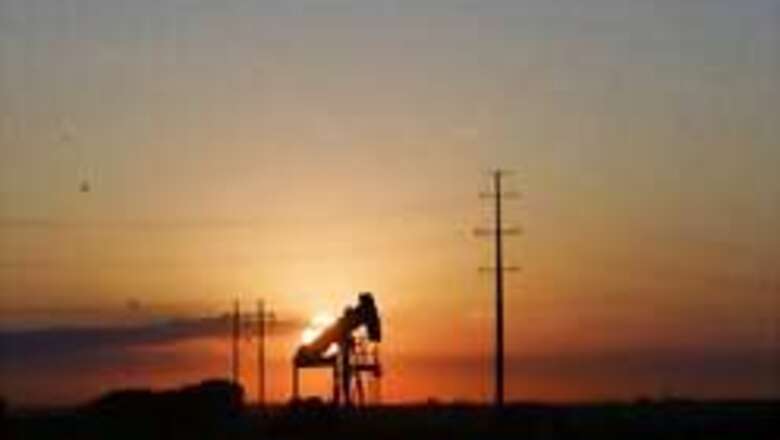
views
Sydney: Oil pushed toward record highs on Monday, after a weekend of worsening conflict between Israel and Hezbollah guerrillas unnerved traders, who fear the violence could escalate and spread across the oil-producing Middle East.
US light sweet crude for August delivery was trading up 55 cents, or 0.71 per cent, at $77.58 a barrel by 0641 GMT, climbing for a fifth day.
Prices soared on Friday to a record-high of $78.40, but pared those gains by the day's end.
London Brent for September, the new front-month contract, rose 37 cents to $77.95 a barrel, having earlier touched a new record $78.08 a barrel, surpassing Friday's previous high due to the contango structure of the market.
"It's geopolitics at the fore," said Justin Smirk, senior economist at Westpac in Sydney.
"Israel has been the key story over the weekend, with oil investors keenly watching supply-side risk should the conflict look like expanding."
"Listening to noises out of Iran and Syria there is clearly a risk the violence could spread elsewhere in the region," he said.
Israeli aircraft blasted Lebanon on Monday killing 17 people after Hezbollah rockets struck deeper than ever into Israel, with no diplomatic initiative in sight to end the fighting.
The latest wave destroyed two army posts on the northern Lebanese coast, killing nine Lebanese soldiers, and damaging the homes of Hezbollah officials in the east of the country, killing five in over 45 strikes at the dawn of a sixth day of violence.
Three more people died in strikes south of Beirut with raids also targeting infrastructure, petrol stations and factories.
Leaders of the world's major powers meeting in Russia urged restraint but said Israel had a right to self-defence, putting the onus on Hezbollah to stop the violence by first releasing two Israeli soldiers it captured on Wednesday.
The crisis has escalated with Hezbollah rocket attacks killing eight in the Israeli city of Haifa on Sunday, its deadliest hit on Israel and one which Israeli Prime Minister Ehud Olmert said would have far-reaching consequences for Lebanon, just as the Lebanese guerrilla group threatened more strikes.
Neither Israel nor Lebanon are oil producers, but both lie at the heart of the Middle East, which collectively pumps nearly a third of global output, and the war could threaten to suck in
Hezbollah's Syrian and Iranian allies. Unrest is keeping oil prices, up 27 percent this year, near record levels.
The conflict compounds unease around the diplomatic stand-off over Iran's nuclear programme, which the world's fourth-largest oil exporter insists is for electricity generation but which the United States fears could be a front for bomb-making activities.
On Sunday, Iran condemned a decision to return its nuclear file to the UN Security Council after it delayed accepting incentives aimed at stopping it from developing nuclear weapons, saying it undermined the prospect of further talks with the West.
And in Iraq, scrambling to restore its oil exports to pre-war levels, a suicide bomber killed 21 people in a cafe north of Baghdad, while the head of Iraq's North Oil Company was kidnapped in the capital, the second high-profile abduction in two days.
With the brunt of the US hurricane season still to come, oil futures contracts for later delivery were trading above $80 from November 2006 to July 2007, pointing to sustained strength.
Analysts have expressed concerns about the effects of high energy prices on global economic growth.
But US Energy Secretary Sam Bodman said on Friday the economy of the world's top energy consumer has held up against rising fuel costs.

















Comments
0 comment